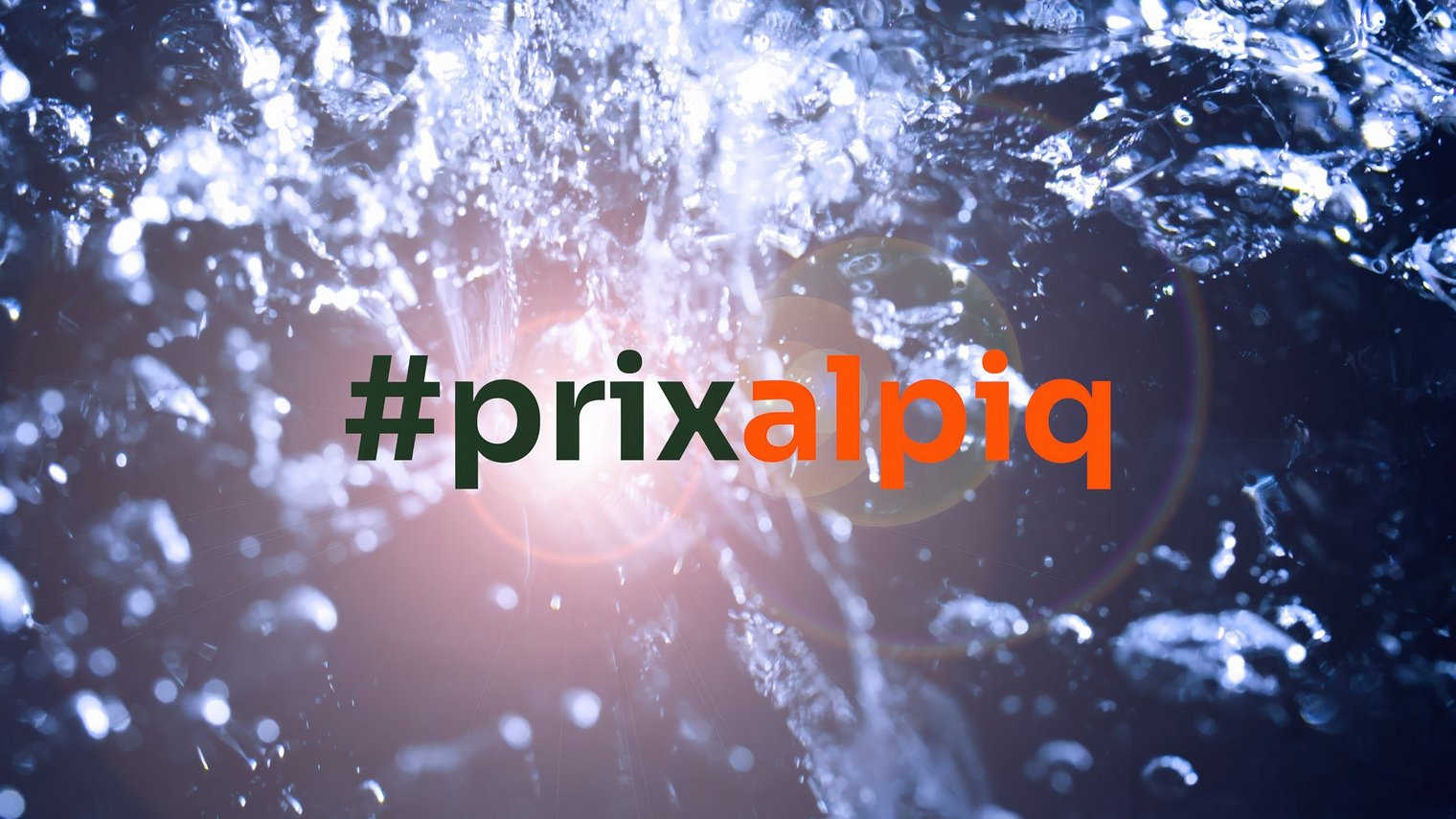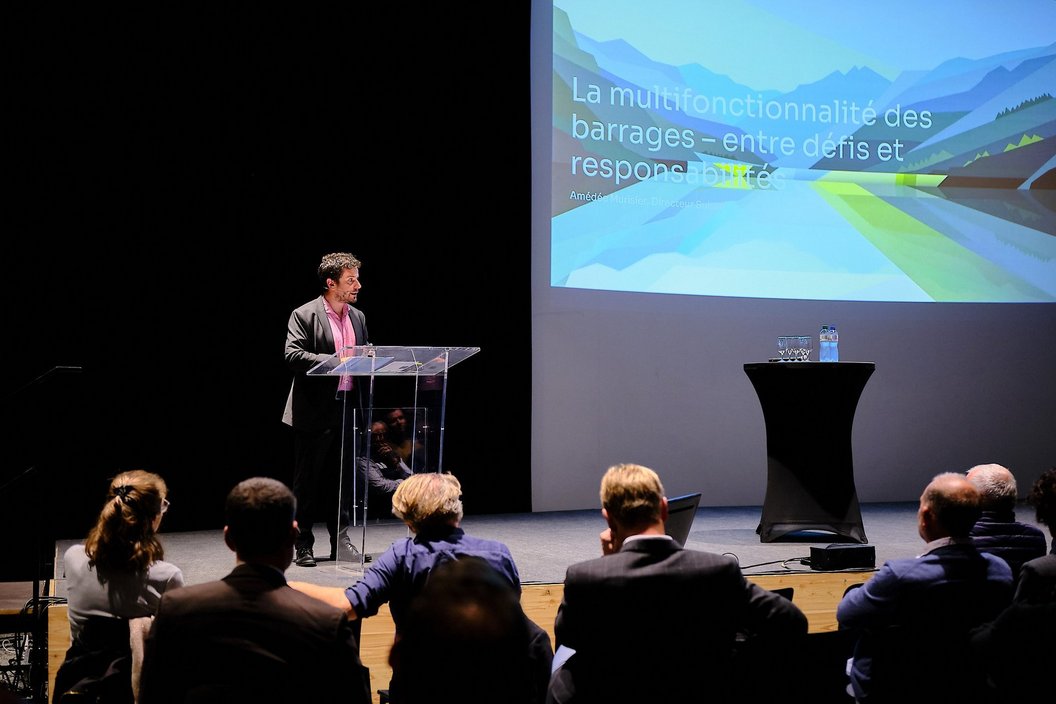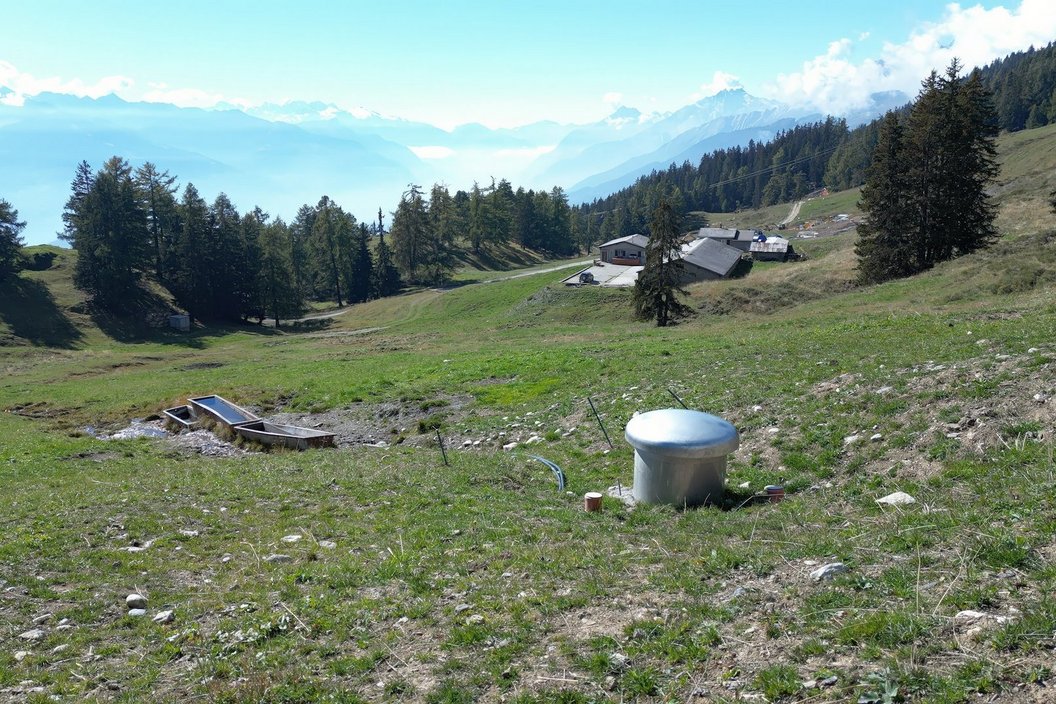
Lausanne – For the fifth year, the #prixalpiq was presented in parallel to a symposium, organised jointly with the University of Lausanne, on the multi-functionality of dams. The winner was the innovative “Corbyre Sponge Catchment Area” project of the municipality of Lens. The “Coup de coeur” award went to a project by the municipality of Leytron incorporating water harvesting into the construction of its new school complex.
The fifth edition of the #prixalpiq has delivered its results. Yesterday evening Alpiq, in partnership with the Association of Concession-Granting Municipalities (Association des communes concédantes du Valais, ACC)”, announced the winners of this competition, which rewards sustainable water management projects. Amédée Murisier, Head of Alpiq’s Switzerland division, Michaël Plaschy, Head of Hydropower Production at Alpiq, and David Melly, President of the ACC, presented the prizes – worth CHF 50,000 – to the winners in person. “Water is a resource that requires special attention both for municipalities and for us,” says Amédée Murisier. “The #prixalpiq, which highlights the sustainable vision of water as a decisive factor, provides undeniable encouragement and support for municipal projects.” Public entities are thus accompanied in their efforts towards the necessary transition. “Climate change requires municipalities to take action to manage water from a global perspective,” acknowledges David Melly. “The #prixalpiq encourages them to implement innovative solutions fostering a more sustainable future.”

Amédée Murisier, Head of Switzerland
The rain will provide water for the school and its green areas
In Leytron, the importance of water management is all too well known, as the municipality is regularly subject to restrictions. During the ongoing construction of the new school complex, comprising a school, a UAPE (After School Reception Unit) and a crèche, the municipal authorities want to set an example by incorporating a rainwater harvesting system. This reserve will make it possible to supply not only the building’s sanitary facilities, but also the watering system for the green areas. This installation is expected to save drinking water even in periods of drought. Introducing this system in the school will help make students aware of the different aspects of water management as a natural resource to be preserved. This didactic aspect, coupled with a specific water-saving measure – which is still uncommon for public buildings – convinced the jury to reward this project with the #prixalpiq “Coup de Coeur”.

The sponge principle in a catchment area to ensure the sustainability of drinking water
The sector in which the project is implemented is located in an important water catchment area in Corbyre, which supplies the municipality of Lens. However, due to climate change and high levels of sunshine, the risks of drought are significant, as are those associated with run-off during extreme events. As part of an overall approach, the municipality wishes to introduce the concept of a “sponge catchment area,” which aims to restore natural hydrological cycles throughout the catchment area. This concept offers many benefits: reduced run-off hazard, increased resilience to droughts, reduced soil erosion, reduced burden on drinking water treatment plants, support for biodiversity, etc. The planned measures consist of landscaping and light rural engineering, thus limiting the impact on the environment. This original combination won over the jury both for its global view of water sustainability and for the “low-tech” aspect of the planned interventions, allowing easy replication at other sites.
An award synonymous with lasting commitment
Eight projects, offering a wide range of solutions for sustainable water management, were submitted for this edition. The jury, made up of prominent figures and water specialists from the canton of Valais, praised the quality of the projects presented. All of them fully met the established criteria of durability, utility and feasibility of the project for the municipalities, as well as its reproducibility and its innovation. Alpiq and the ACC are looking forward to supporting these two projects and hope that they will inspire others in other municipalities. The #prixalpiq supports the municipalities of Valais in their commitment to efficient water management and provides recognition that makes it easier to carry out a project, such as the Salquenen irrigation system or the management of underground resources in Martigny.
The #prixalpiq award ceremony concluded a symposium on the multi-functionality of dams. Andréa Savoy, a PhD student at the University of Lausanne, presented the results of her research. Since 2020, she has studied the emergence and evolution of this concept, as well as how different actors perceive the multi-functionality of water and hydroelectric infrastructure. She has also explored the institutional rules, the configuration of the actors involved and the effect of governance on the durability of hydropower management. Bringing together stakeholders from within the industry as well as from political and academic circles, two round tables gave the participants of this symposium a comprehensive view of this topic.
